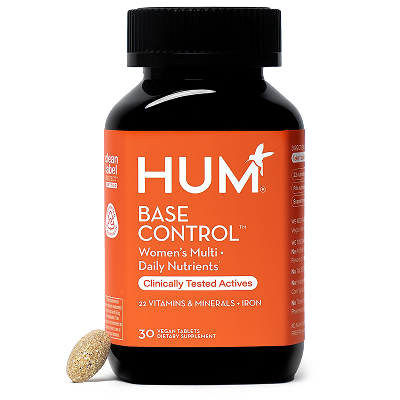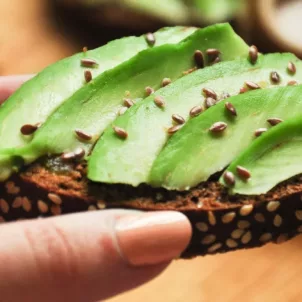Chelsey Amer, MS, RDN, CDN, discusses how your nutritional needs change over time. Plus: expert insights on evolving dietary requirements and nutritional needs by age group.
Nutrition isn’t constant. As much as it would be great to find a pattern of eating that works for you and stick to it, the truth is that your nutritional needs change with age.






An Introduction to Nutrition As We Age
Think about it: For the first four to six months of your life, you exclusively eat breast milk or formula to meet all of your nutritional needs. From there, you begin to add a variety of (chewable) food to your diet as you get older to ensure a variety of nutrients. A one-year-old’s nutritional needs vary from a five-year-old’s, which differs from a teenager’s. Even after you hit puberty, your body continues to undergo countless changes throughout your life. It’s not so surprising then that your nutritional needs as a 50-year-old are different from when you were 20. With age comes wisdom and years of experience—but it also adds a slew of other health and beauty concerns to contend with, which also contribute to your evolving nutritional needs.How Nutritional Needs Change Over Time
Here’s a closer look at how nutritional needs change over time, including specific developments in dietary requirements by age group.
In your 20s…
Your 20s are the perfect time to establish healthy eating habits. After all, it’s easier to sustain well-ingrained eating habits early on than it is to transform later in the game. For many, your roaring 20s are the first time you may live on your own. With that, you (finally) have complete autonomy over your food choices. As such, it’s a good idea to focus on a well-balanced diet to nourish your body. A well-balanced diet entails:- eating a rainbow of colors from vegetables + fruit
- choosing high-quality proteins, including both animal + plant-based options
- prioritizing healthy fats like olive oil, avocado + fatty fish
- adding carbohydrates to your diet (especially high-fiber whole grains and beans)
- dairy products like milk, yogurt + cheese
- fortified plant-based milk alternatives
- tofu
- bone-in canned salmon
- dark leafy greens
- egg yolks
- oily fish
- fortified foods

In your 30s…
Unfortunately, your metabolic rate starts to decline as early as your 30s. That’s why it’s essential to maintain lean muscle mass. Eating protein at most meals can help maintain your muscle mass. Try to include a variety of animal- and plant-based proteins, including:- chicken, turkey, fish + red meat
- beans + lentils
- tofu, tempeh + edamame
- folate
- choline
- omega-3 fatty acids
- calcium
- iron

In your 40s…
To keep your heart, brain, and skin healthy, prioritizing omega-3 fatty acids is an important dietary requirement by age 40. Omega-3 fatty acids are considered essential fatty acids because the body can’t make them. Instead, you must get these nutrients from dietary sources. Food sources of omega-3 fatty acids include:- fatty fish like salmon + sardines
- nuts, including walnuts + almonds
- seeds like chia seeds, hemp hearts + flax seeds
- support heart health
- balance cholesterol levels
- reduce inflammation
- support healthy skin
- keep your brain sharp (After all, 60 percent of your brain is made up of fat!)

In your 50s…
Moving along with how nutritional needs change over time, by the time you reach your 50s, it’s important to focus on vitamin B12. Due to lower levels of stomach acid as you age, it becomes harder to absorb this crucial vitamin. Vitamin B12 is essential for various systems in your body, including your nervous system, energy metabolism, and red blood cell formation. A lack of vitamin B12 can lead to health issues such as fatigue, headaches, muscle weakness, tingling, vision changes, and more. Furthermore, vitamin B12 is found exclusively in animal products, including dairy, eggs, fish, meat, and fortified foods. If you’re a strict vegetarian or vegan, you’re at even higher risk of becoming deficient in vitamin B12. Ask your doctor if a B12 supplement, like HUM’s B12 Turbo, is right for you. Moreover, on average, women reach menopause by the age of 51. Following a healthy, well-balanced diet can help balance your hormones. Be sure to include enough vegetables and fruit, lean protein, and healthy fats to stay full and energized throughout the day. Focus on complex carbohydrates, which are higher in fiber, too. Every woman will experience menopause differently, so it can be helpful to work with your physician to help balance your hormones. If you have specific changes in your sleep patterns, energy levels, or digestive health, reach out to a dietitian for personalized recommendations.
In your 60s…
Aging is a beautiful process, but your body does go through a plethora of changes. To start, aging skin isn’t just about your appearance. You may absorb less vitamin D and be slower to activate the vitamin D you do absorb from the sun, which can then impair your body’s ability to absorb calcium. That’s why it’s important to eat calcium and vitamin D-rich foods. From there, when necessary, boost your diet with supplements. To support aging skin, you should also continue to focus on eating vegetables and fruit for their rich antioxidant content—particularly vitamin C. Among other benefits, higher vitamin C intake is associated with the reduced appearance of wrinkles.
After 70…
In your later years, your thirst and appetite may decline, your taste buds weaken, and you may produce fewer digestive enzymes (which help absorb nutrients). To meet your nutritional needs as you age—in terms of calories, protein, fats, carbohydrates, vitamins, minerals, and water—adopt these easy tips:- eat on a schedule
- supplement with digestive enzymes to better absorb the nutrients in your food
- add flavor to your food with herbs + spices
- try to get the biggest “bang for your buck” at meal + snack times by focusing on nutrient-rich whole foods
The Bottom Line
As you can see, your nutritional needs change over time in a number of interesting ways. But fortunately, you can teach an old dog new tricks—and it doesn’t have to be so challenging. Staying flexible and adopting healthy eating habits as early as possible are key to getting the nutrients you need and meeting the necessary dietary requirements by age group.More like this









